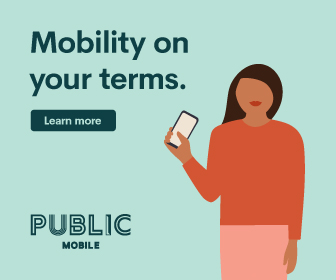Whether you’re buying a car, closing a real estate deal, or settling a debt, certified cheques offer a secure and reliable payment method. In this article, we’ll delve into the world of certified cheques, exploring what they are, how they work, and why they are a preferred choice for many Canadians.
What is a Certified Cheque?
A certified cheque is a type of payment instrument issued by a bank or financial institution. It serves as a guarantee that the funds required to cover the cheque are available in the payer’s account. When a cheque is certified, the bank sets aside the specified amount, essentially earmarking it for the cheque’s payment, ensuring the payee that the funds are secure.
Certified cheques are typically used in situations where a high level of trust and security is required, such as real estate transactions, large purchases, or settling legal obligations.
How to get a Certified Cheque?
To obtain a certified cheque, follow these steps:
- Start by ensuring you have an active bank account with adequate funds to cover the requested cheque amount. Certain banks may no longer provide Certified Cheque services as they embrace newer and more convenient payment solutions. It’s advisable to check with your bank to confirm their current services.
- Visit your bank branch and request a Certified Cheque. The bank teller will likely verify your identity.
- Complete the cheque by filling in the necessary details, including the date, payable amount, payee’s name, memo, and signature.
- The bank teller will affix the official bank seal to certify the cheque, rendering it certified.
- Be aware that a fee is typically charged for issuing a certified cheque.
The Certification Process
The process of obtaining a certified cheque is relatively straightforward:
- Request: The payer (the person making the payment) requests a certified cheque from their bank. This request typically involves visiting a local branch and specifying the payee (the person or entity receiving the payment) and the cheque amount.
- Verification: The bank verifies that the payer has sufficient funds in their account to cover the cheque. They place a hold on these funds, ensuring they are not used for any other purpose.
- Certification: Once the funds are verified and earmarked, the bank certifies the cheque by endorsing it or affixing a certification stamp. This endorsement confirms that the bank will honor the cheque when presented for payment.
- Issuance: The certified cheque is then issued to the payer, who can provide it to the payee as a secure form of payment.
Why Use Certified Cheques?
Certified cheques offer several advantages that make them a preferred choice in certain financial transactions:
- Security: Certified cheques provide a high level of security for both the payer and the payee. Since the bank verifies and sets aside the funds, there is minimal risk of the cheque bouncing or the payment failing.
- Credibility: The certification process adds credibility to the cheque, making it a reliable form of payment. This can be especially important in significant transactions, such as real estate deals or business transactions.
- Legal Requirement: In some cases, certified cheques are legally required. For example, in many real estate transactions in Canada, a certified cheque for the down payment is necessary to demonstrate the buyer’s commitment.
- Record Keeping: Certified cheques provide a clear paper trail of the transaction, which can be valuable for record-keeping and auditing purposes.
Cost of Certified Cheques
While certified cheques offer numerous benefits, they are not entirely without cost. Banks typically charge a fee for certifying a cheque. The fee can vary depending on the financial institution and the amount of the cheque. It’s essential for individuals to inquire about the fees associated with certified cheques when requesting one from their bank.
Limitations and Considerations
While certified cheques are a secure and reliable form of payment, there are some limitations and considerations to keep in mind:
- Limited Use: Certified cheques are not suitable for all types of transactions. They are typically used for larger payments or when a high degree of security is needed. For everyday purchases, personal cheques, cash, or electronic transfers may be more appropriate.
- Expiry Date: Certified cheques may have an expiry date. It’s important to check with the issuing bank to understand the validity period of the cheque. If it expires, the funds may need to be re-certified.
- Non-Refundable: Once a cheque is certified, the funds are set aside and cannot be withdrawn by the account holder until the cheque is presented for payment. This means that the funds are effectively frozen until the cheque is used.
- Replacement for Lost Cheques: If a certified cheque is lost or stolen, the process of getting a replacement can be complex and time-consuming. It typically involves providing an indemnity agreement to the bank.
Alternatives to Certified Cheques
In some cases, there may be alternatives to certified cheques that serve a similar purpose:
- Bank Drafts: A bank draft is a payment instrument issued by a bank, and it is considered as good as cash. It’s often used in situations where a certified cheque would be appropriate.
- Electronic Funds Transfer (EFT): Electronic transfers can provide a secure and convenient way to make large payments without the need for physical cheques. This method is commonly used for business transactions.
- Wire Transfers: Wire transfers are a quick and secure way to move funds directly from one bank account to another. They are often used for international transactions or when immediate settlement is required.
- Mobile Payment Apps: Various mobile payment apps like PayPal, Interac e-Transfer, Apple Pay, Google Pay, Samsung Pay, Tangerine, CIBC Mobile Banking, BMO Mobile Banking, Scotiabank Mobile Banking and others allow you to send money to individuals or businesses through your smartphone.
- Credit or Debit Cards: Credit and debit cards can be used for payments, especially for online transactions. They offer convenience but may involve interest charges or fees for credit card transactions.
Conclusion
Certified cheques are an essential tool in the financial toolkit of Canadians. They provide a high level of security and trust in various transactions, particularly in real estate deals and significant purchases. While they come with some fees and limitations, their reliability makes them a valuable payment method for ensuring that funds are available and secure. Before using certified cheques, individuals should familiarize themselves with the process and consider alternatives based on their specific needs. Ultimately, understanding the role of certified cheques in the Canadian financial landscape can help individuals make informed decisions in their financial transactions.
















